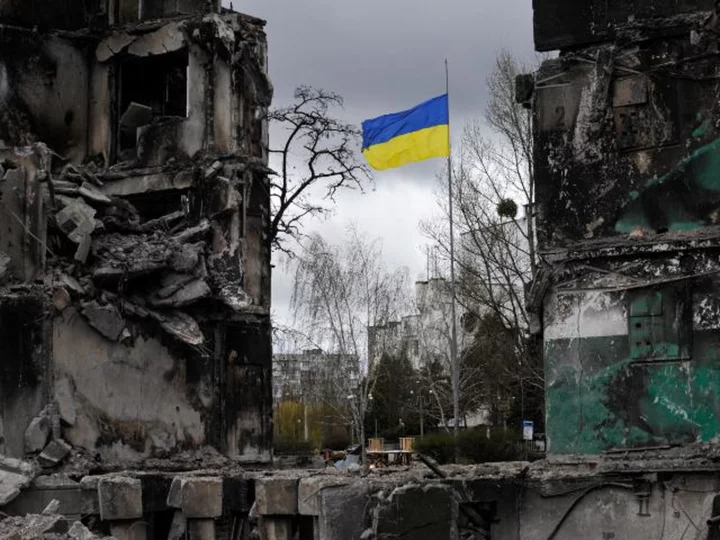The world must learn from the mistakes made after the war in Bosnia to avoid putting Ukrainian victims of rape and conflict-related sexual violence through decades of trauma, a new expert report has warned.
Ukrainian prosecutors and independent investigators from the United Nations and other international organizations have said there is mounting evidence that Russian troops are using rape and sexual violence as part of their campaign of terror in Ukraine -- similar to the systematic use of rape by the Bosnian Serb army during the Bosnian war in the early 1990s. Russia has denied the allegations.
The report by the New Lines Institute for Strategy and Policy, a US-based think tank, is set to be released and discussed in a debate in the UK Parliament on Thursday.
It says that if the world wants to avoid the repeat of the trauma faced by the victims in Bosnia, it needs to focus on the victims first in Ukraine. Many in Bosnia have waited for decades before coming forward and the vast majority of sexual crimes committed there have gone unpunished.
"Rape was one of the main aspects of the war in Bosnia and yet when we look at the Dayton Peace Accords, there were no women around the table, there were no survivors of conflict-related sexual violence," said Emily Prey, one of the report's lead authors, referring to the 1995 agreement that ended the Bosnian war.
"They didn't have a say in the peace (negotiations), and so instead of a real, sustainable, lasting peace, the Dayton Accords actually only froze the conflict," she told CNN.
Prey said that when considering survivors of conflict-related sexual violence, it is crucial to put aside biases and stigma and make sure everyone who is impacted is included.
"We often think sexual violence is a crime that only happens to women, but it's a crime that happens to everyone. Women and girls, men, boys, people with diverse gender identities," Prey said.
"Men who were victims of conflict-related sexual violence in the Bosnian war are only just coming forward to say that they survived this crime, and so they have gone decades without receiving the support that they need. And we're seeing this in Ukraine as well."
Prey added that children born of wartime rape are often forgotten as well. Between 2,000 and 4,000 children were born just from the documented cases of wartime rapes in Bosnia, although the real number is likely much higher.
"If we don't really think about conflict-related sexual violence enough, then we especially don't think about children born of wartime rape. In Bosnia, they were called the 'Invisible Children'... and they have been fighting for years to get recognition because they've faced barriers and difficulties throughout their lives," she added.
The report also says it will be crucial for Ukraine's allies to be ready to prosecute perpetrators on behalf of Ukraine. This can happen either under the UN's Genocide Convention or in national courts under the principle of universal jurisdiction, which allows national or international courts to prosecute individuals for crimes against international law committed in other territories.
Prey said a recent case of a Bosnian Serb soldier charged with murder and rape that was transferred from Bosnia to Montenegro, where the accused was living, was a good example of this mechanism working well.
The International Criminal Court has already issued an arrest warrant for Russian President Vladimir Putin and launched an investigation into alleged Russian war crimes in Ukraine. Several countries including Lithuania, Germany, Sweden, and Spain have all opened their own investigations into alleged Russian atrocities.
However, Prey said these cases could be costly and lengthy, which means there needs to be an extra focus on providing immediate help to the victims, including psychological and social support, free health care and free legal aid.
"They might not see any conclusion to a court case for 10 or 20 years," she said. "And survivors of conflict-related sexual violence, they deserve more than that. They deserve justice for themselves, accountability, but they also need to live, they need to take care of their families, they need to pay their bills and they need the support for this."

